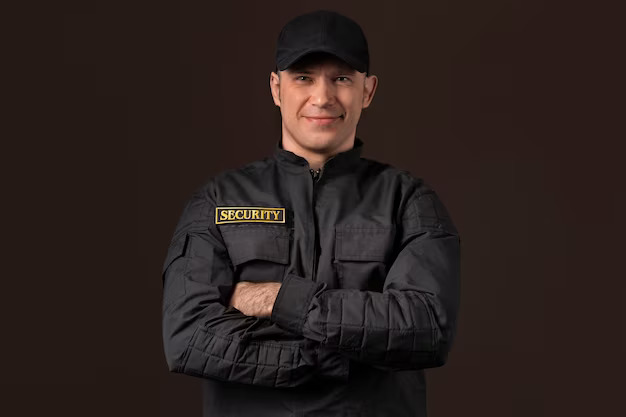Special Police Officers (SPOs) play a crucial role in maintaining safety and security within their designated areas. While their duties are similar to those of regular police officers, they have distinct responsibilities that require specialized training and expertise. In this article, we will explore the role and responsibilities of a Special Police Officer, the training they undergo, and what lies beyond the initial training.
Understanding the Special Police Officer (SPO)
A Special Police Officer undergoes specialized training to become a law enforcement officer with distinct responsibilities, often employed by private organizations or institutions. Their primary objective is to safeguard the property, assets, and individuals associated with their employer.
Training for Special Police Officers
To become a Special Police Officer, individuals must go through a specific training program that prepares them for their responsibilities. The training typically includes:
Classroom Instruction
During classroom instruction, SPOs learn about relevant laws, regulations, and procedures. They study topics such as the use of force, arrest procedures, and legal rights.
Practical Training
Practical training involves hands-on exercises, including firearms training, self-defense tactics, and emergency response procedures.
On-the-Job Training
After completing their formal training, SPOs often undergo on-the-job training to become familiar with their specific work environment, policies, and protocols.
The Responsibilities of a Special Police Officer
SPOs have a range of responsibilities that may include:
Protecting Property
Special Police Officers are primarily tasked with safeguarding the property of the organization they serve. This may involve patrolling premises, monitoring security systems, and ensuring the physical safety of assets.
Ensuring Public Safety
SPOs often provide a visible presence that deters criminal activity. They may also assist the public, offering directions or guidance when needed.
Enforcing Regulations
In some cases, SPOs are responsible for enforcing specific rules and regulations set by their employers. This can include checking identification, verifying access permissions, and ensuring compliance with company policies.
Conducting Investigations
SPOs may be required to conduct preliminary investigations in response to security incidents. While they don’t have the same authority as sworn law enforcement officers, they play a vital role in gathering information and preserving evidence.
Emergency Response
Special Police Officers are trained to respond to emergencies, including medical situations, fires, or security breaches. They are often the first on the scene and play a critical role in coordinating the response until law enforcement or emergency services arrive.
Beyond Training: Ongoing Professional Development
The responsibilities of an SPO don’t end with their initial training. Continuous professional development is essential to stay current and effective in their role. This may include:
Regular Recertification
SPOs often need to renew their certifications periodically, which may involve refresher training on relevant topics.
Staying Informed
SPOs must keep up with changes in laws, regulations, and security technology that impact their work.
Skill Enhancement
Ongoing training in areas like de-escalation techniques, crisis management, and first aid can enhance an SPO’s skillset.
Conclusion
In conclusion, the role and responsibilities of a Special Police Officer (SPO) are crucial to maintaining safety and security in various private organizations and institutions. Their unique training equips them with the knowledge and skills needed to protect property, enforce regulations, and respond to emergencies. While their authority is distinct from that of regular police officers, their contributions are invaluable in ensuring the well-being of individuals and assets under their care. Continuous professional development is essential for SPOs to adapt to evolving security challenges and stay updated on relevant laws and technologies. Special Police Officers stand as a testament to the significance of professional, specialized security in today’s world, making them an essential component of a comprehensive safety strategy.
FAQs
1. What is the main difference between a regular police officer and a Special Police Officer?
The main difference lies in jurisdiction and authority. Regular police officers have authority throughout a specific geographic area, while Special Police Officers have authority limited to their employer’s property or the area they are responsible for.
2. Can Special Police Officers make arrests?
Yes, Special Police Officers can make arrests, but their authority is limited to the property they are responsible for or the specific jurisdiction granted to them by law.
3. What kind of training do Special Police Officers receive?
Special Police Officers receive training in areas such as use of force, arrest procedures, self-defense, and legal regulations relevant to their role.
4. Are Special Police Officers armed?
Some Special Police Officers are armed, depending on their specific duties and the policies of their employer. The decision to arm SPOs is made by the employer and may be subject to state or local laws.
5. What happens if an SPO’s certification expires?
If an SPO’s certification expires, they may no longer have the legal authority to perform their duties. Therefore, regular recertification is essential to continue working as an SPO.
6. Do SPOs work in the same way as security guards?
While there are similarities, SPOs often have more authority and responsibilities than traditional security guards. They may have the power to make arrests and are typically trained to handle a wider range of security situations.


